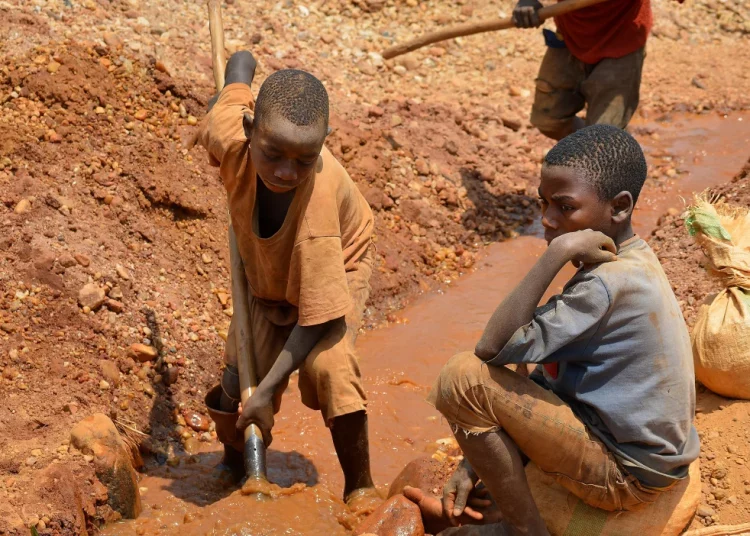The menace of child labour is assuming an alarming proportion in Nigeria. Experts warn that if the situation is not controlled soon, it may have massive implication in the near future. It will self-defeatist for the authorities to fold hands and assume that the problem will go away on its own.
The United Nations has estimated that if there are no mitigation strategies set in place, number of children engaged in child labour in Nigeria could increase by 8.9 million at the end of 2022, as a result of higher rate of poverty and increased vulnerability.
In Nigeria, several children are forced to make a living on the streets. This they do by presumably assisting their parents or guardians, either as street hawkers or beggars, while others are sent away as domestic servants. There are those children employed to work in industries too. The most common industries that employ children in Nigeria are cocoa farming, gold mining, sediment sifting, street peddling and domestic servitude.’
Sadly, child labour is on the increase in Nigeria as there are about 15 million child workers as of 2020, according to International Labour Organization (ILO). At a disturbing percentage of 43 out of the total population of minors, it is said to be the highest recorded rate of child labour in Western Africa.
International organisations, in particular, the World Bank have pointed out the increase in poverty rates which they say has risen almost 20 per cent, which is an increase from 53 per cent in 2003. As a result of this, more families expect their children to contribute to their upkeep.
This year’s World Day Against Child Labour theme is tagged, ‘Universal Social Protection to End Child Labour.’ It is a call for more investment in social protection systems in order to create a strong social protection base that can keep children safe from child labour.
According to the UN,160 million children are still involved in child labour, with some as young as five years old. At the beginning of 2020, 1 in 10 children aged five and above were engaged in child labour globally, resulting to about 160 million children with 63 million girls and 97 million boys.
Furthermore, in 2021, ILO and UNICEF records that worldwide progress was made significantly in reducing child labour in the past two decades, as the number of children engaged in child labour fell by 85.5 million between 2000 and 2020, from 16 per cent to 9.6 per cent. UN has said that just 26.4 percent of children globally, receive social protection cash benefits.
The organisation said that, as of 2020 and before the COVID-19 pandemic, just 46.9 per cent of the global population were actively protected by at least one social protection benefit, while the rest was at 53.1 per cent, leaving about 4.1 billion people unprotected. It is tragic to understand that this same coverage where children are concerned is lower, as almost three quarters of children, 1.5 billion, were without social protection.
UN also noted that in least developed countries, a little more than one in four children, ages 5 to 17, are involved in labour. Africa is seen as guilty of a huge portion of the world’s child labour as the continent is recorded to have the highest child labour, with percentage of children involved at one-fifth — and the absolute number of children in child labour at a staggering 72 million. Asia and the Pacific on the other hand, take second place in both measures ranking second as it recorded 7 per cent of all children and 62 million being in child labour, the UN says. The organisation adds that Africa and Asia and the Pacific regions put together are responsible for about nine out of every ten children in child labour worldwide!
The rest of child labour, it says, are then divided among: the Americas, which has 11 million, Europe and Central Asia with 6 million, and the Arab States with 1 million. Where incidence is concerned, 5 per cent of children are in child labour in the Americas, 4 per cent in Europe and Central Asia, and 3 per cent in the Arab States.
In Nigeria, the situation is becoming more worrisome in spite of laws being put in place regarding child labour by the federal government. None of these laws are fully implemented, thus endangering children. There are several dangers children face when out working, for example on the streets, they are easy targets for violence and traffickers. Furthermore, these children are at risk of being indoctrinated against the society and used as child soldiers or worse, killed. According to UNICEF, about 3,500 Nigerian child soldiers enlisted between years 2013 – 2017.
Now is the time for the federal government to once more look into the Child Rights Act signed in 2003 and implement these laws to protect children from child labour. Enough of the talking, it is time to take action.





